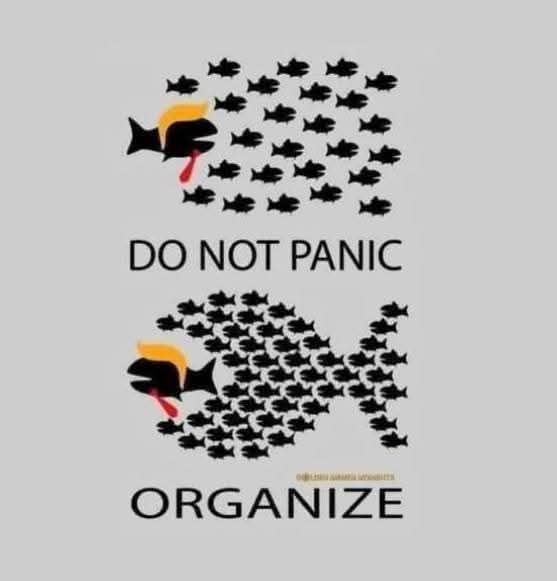Can NATO Survive?
(cartoon by Banksy)
In a February 20th article titled "Can the West Survive," I stated that under this administration, the United States is no longer an ally its neighbors and traditional allies can rely on.
On the contrary, it is becoming an enemy to be feared.
Sharing intelligence with the U.S. carries the previously unthinkable risk of directly feeding it to Russia’s President Putin.
As a result, members of the European Union, NATO, Australia, New Zealand, Japan, and Canada should be prepared to form a new alliance to safeguard Western interests independently from the U.S. A revitalized Western European Union could serve as the foundation for this alliance.
In the current climate, it makes sense for Western countries to rethink their dependence on U.S. weaponry and military systems, significantly reduce it, or even eliminate it altogether to prevent the Trump administration from controlling their supplies. Money speaks volumes and could send a strong message to the administration through the U.S. defense industry.
According to the BBC, Germany's chancellor-elect didn't wait for the final results of his country's election on Sunday to herald a new era in Europe.
Declaring the US indifferent to this continent's fate, Friedrich Merz questioned the future of NATO and demanded Europe boost its own defenses.
The Trump administration has shocked big European powers by suggesting it could revoke the security guarantees Europe has had in place since 1945.
"I would never have thought that I would have to say something like this in a TV show but, after Donald Trump's remarks last week... it is clear that his government does not care much about the fate of Europe," Merz said during a post-election debate on Sunday.
"My absolute priority will be to strengthen Europe as quickly as possible so that, step by step, we can really achieve independence from the USA," he added.
Merz hinted that the endeavor was so urgent that he was unsure whether the transatlantic alliance leaders gathering for a June summit "would still be talking about NATO in its current form or whether we will have to establish an independent European defense capability much more quickly."
Notably, the incoming chancellor equated Donald Trump's America with Russia, which is broadly seen here as a security threat to Europe overall. "We are facing immense pressure from both sides, so my top priority right now is to foster unity in Europe," Merz stated.
The German sense of deep domestic insecurity prompted Friedrich Merz to suggest last week that he would seek France and Britain to form a European nuclear umbrella to replace US nuclear guarantees.
On February 25th, the Financial Times reported that Peter Navarro, one of the US president’s closest advisers, is pushing for the US to remove Canada from the Five Eyes — which also includes the UK, Australia and New Zealand — according to people familiar with his efforts inside the administration.
While Navarro has emphatically denied this, Prime Minister Justin Trudeau’s former national security and intelligence adviser (NSIA), Vincent Rigby, says the threat to pull Canada out of the Five Eyes Alliance is “not a total shock.”
“I’m sure the Trump administration has an extensive list of potential pressure points, and it would be natural for the Five Eyes relationship to be considered as something they might want to leverage against Canada," Rigby said in an interview with CTV National News.
Even with Navarro’s denial, Rigby remains unconvinced.
“While we may not have a fire here, we may have some smoke and some serious smoke,” he said.
Rigby also noted that the threat of withholding intelligence was employed as a tactic during his time as NSIA in Trump’s first term.
“There were subtle hints that this measure could potentially be applied in an extreme case, but it never was. They never approached us and explicitly said, ‘We’re about to withhold intelligence,’” Rigby said.
"However, if you read between the lines, you might pick up on a subtle hint that we could always hold back on some of the information we shared with you.”
Where does this leave Canada?
Can Canada collaborate with Europe to establish a new alliance, safeguarded by the French-British nuclear umbrella, that is robust enough to withstand Russian pressure?
Canadian Prime Minister Justin Trudeau was invited to and attended the European summit in London on March 2, following the debacle at the White House on February 28. Trump has finally shown that he is no longer a trusted ally, nor will he stray from Putin’s talking points.
Is Canada’s involvement a promising development?
Does Europe—excluding Hungary, a Putin ally in NATO and the EU—seek to partner with Canada in a new framework that could ultimately make it a hub for Western security?
Will Europe support Canada as it faces the challenges posed by an assertive and expansionist United States, as well as Russia and China, both eager to capitalize on Canada’s northern resources?
These questions will be central to the NATO Summit in June, where leaders will come together to address emerging harsh realities.




Why wouldn't Europe support Canada? They are currently "connected" through Denmark, Norway and the Arctic seas. Would they really want Canada to become part of the USA and, by extension, Russia? As you said, we have some precious resources that could be useful to them. No?
Events are occurring rapidly? These issues and others, such as extending the french nuclear dome to the rest of Europe, will be discussed in Bruxelles tomorrow. The militarisation of Europe, whitch now is urgent, will be the main topic. Cost: 800 billion